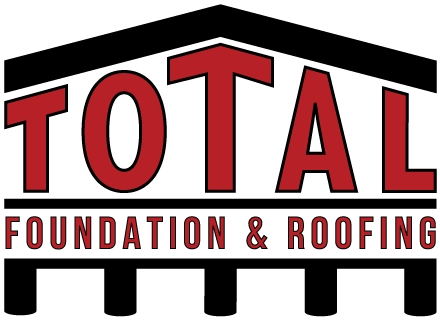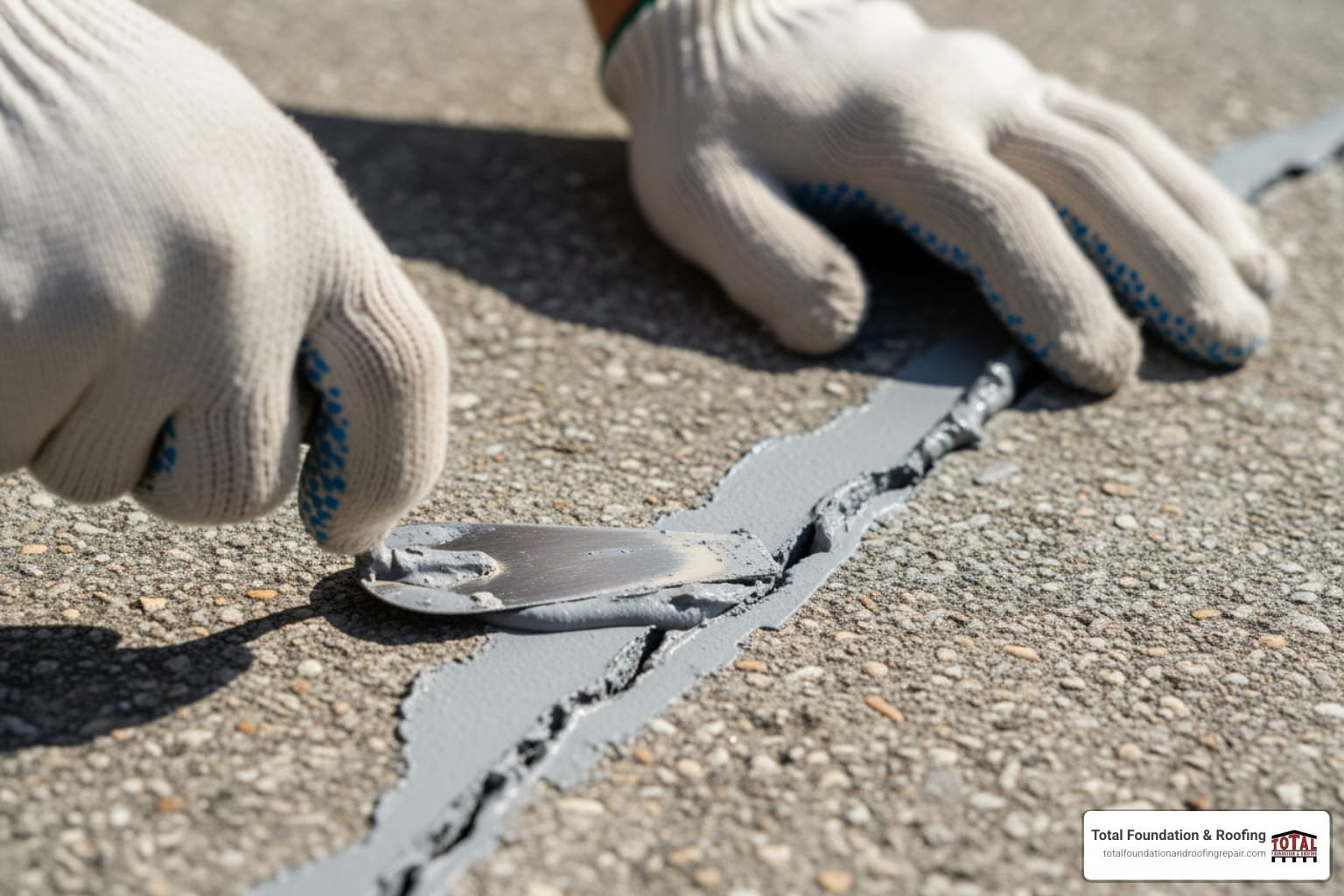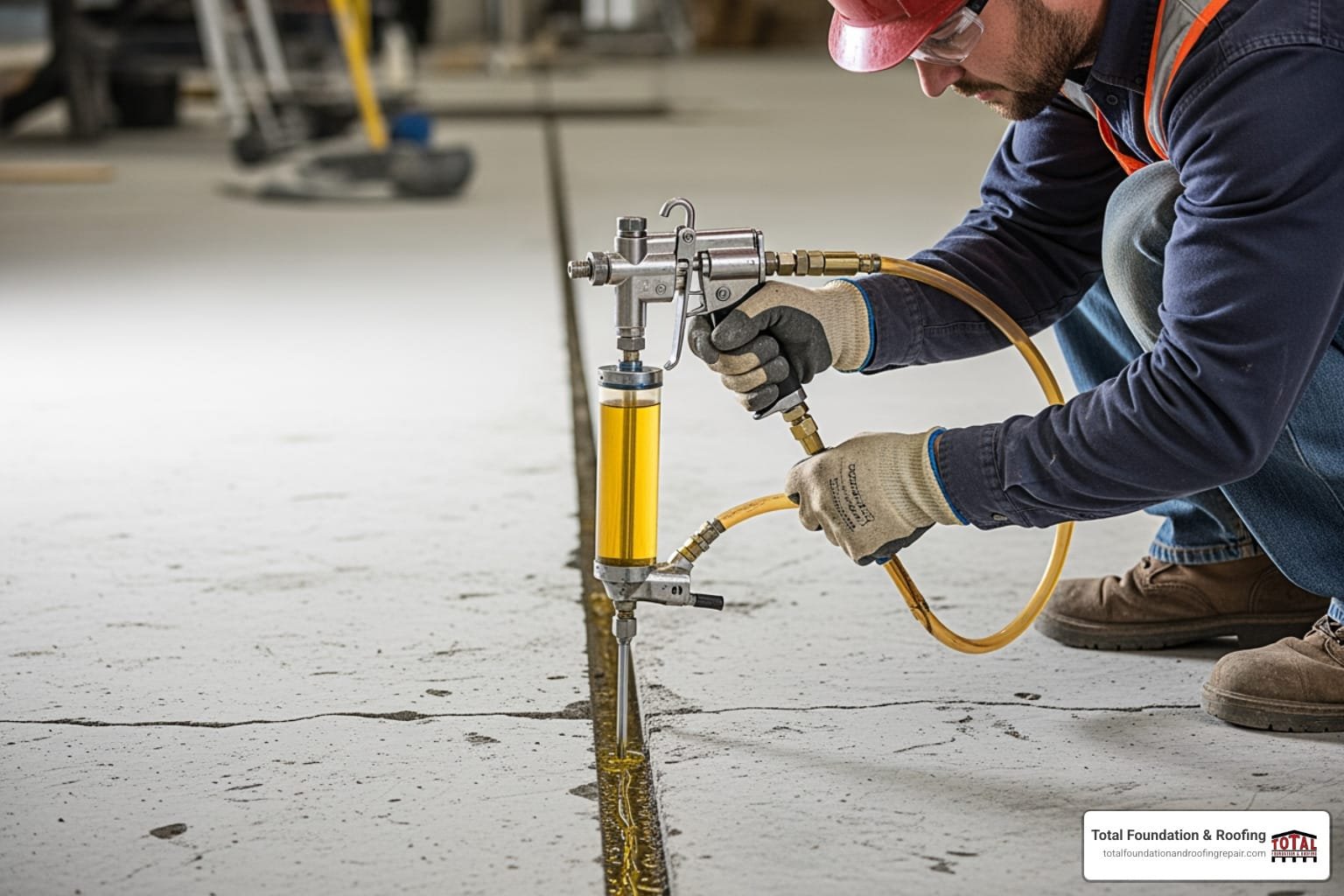Table of Contents
ToggleUnderstanding Foundation Repair Costs
The cost of foundation repair ranges from $250 for minor crack repairs to over $30,000 for extensive damage. If you’ve noticed sticking doors, uneven floors, or wall cracks, you’re right to be concerned about repair costs. For homeowners in the Texas Hill Country, ensuring you have a solid foundation for your home is the first step to protecting your investment. The final price varies dramatically based on the severity of the damage and the required repair method.
Quick Cost Breakdown:
- Minor crack sealing: $250 – $800
- Foundation stabilization: $18,000 – $40,000
- Mudjacking/slabjacking: $500 – $1,450
- Steel pier installation: $1,000 – $3,000 per pier
- Basement waterproofing: $2,000 – $10,000
Foundation issues affect all types of homes across Texas. A hairline crack caught early might cost $500 to fix, but waiting until it causes structural damage could push repairs into the $15,000 range or higher. For homeowners needing reliable foundation repair services, understanding the budget is key. We proudly serve homeowners in the Kerrville, Texas area and throughout the Hill Country.
I’m Daniel Sowell, owner of Total Foundation & Roofing. With over 18 years of experience, I’ve seen how early intervention saves homeowners thousands of dollars. Let’s break down what goes into the cost.
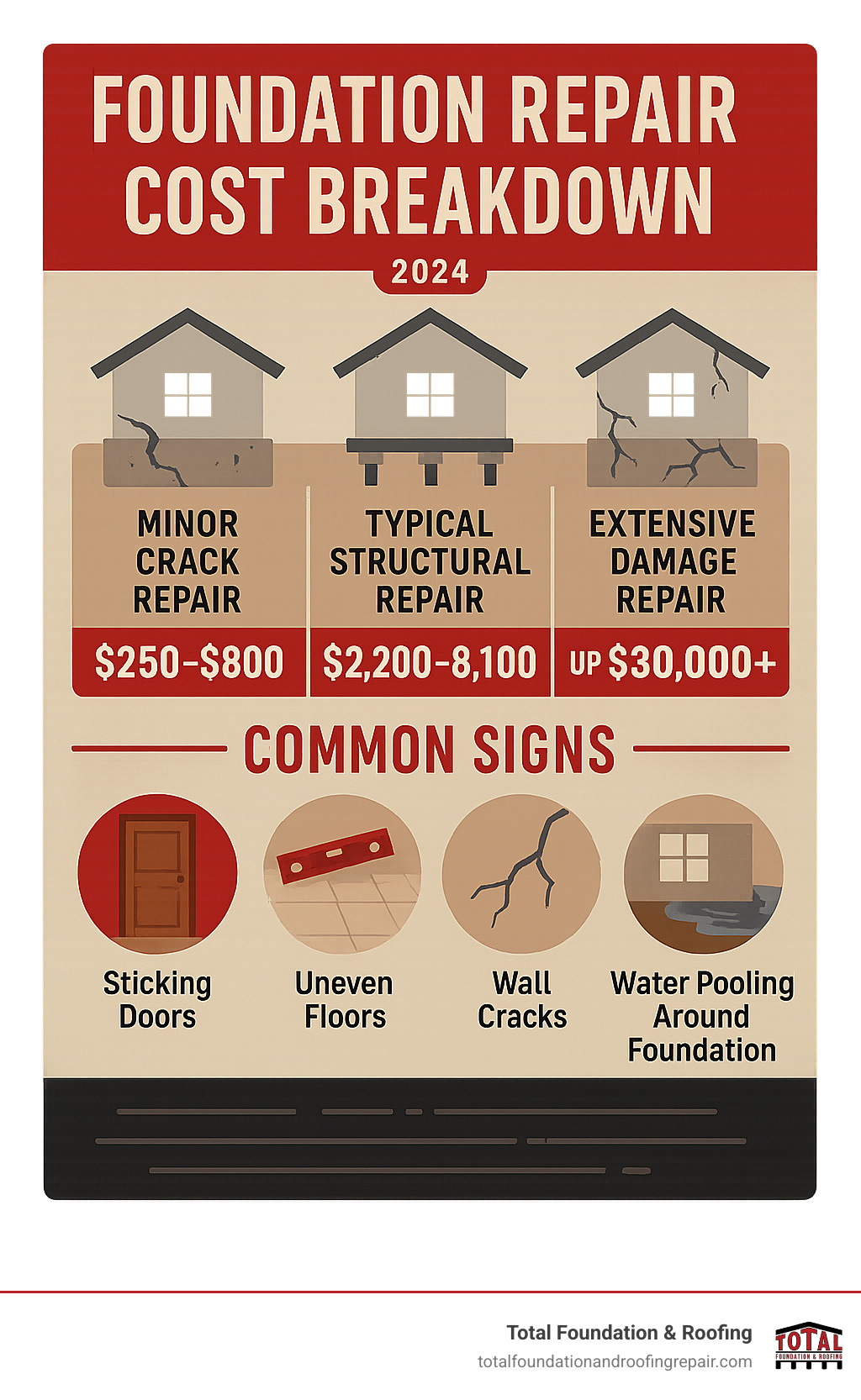
Breaking Down the Cost of Foundation Repair
The cost of foundation repair is a lot like a car repair bill—it depends entirely on the problem. A minor crack is like an oil change, while major structural issues are a full engine rebuild. Understanding the key factors, repair methods, and potential extra expenses will help you budget effectively and avoid surprises.
Key Factors That Influence Repair Expenses
The biggest factor in determining your repair costs is damage severity.
- Hairline cracks are minor, often cosmetic, and typically cost $250 to $800 to seal with epoxy injection. It’s worth fixing them before they grow.
- Structural cracks, especially horizontal ones or any crack wider than a quarter inch, signal serious problems from soil pressure or water damage. Repairing these can cost $2,000 to $5,000 or more.
The repair method needed also dramatically affects the price. Simple crack sealing is inexpensive, but methods like piering involve heavy equipment and skilled labor.
Here in the Texas Hill Country, soil conditions play a huge role. Our expansive clay soils shrink and swell, putting tremendous stress on foundations and often requiring more extensive stabilization. Challenging soil may require a report costing $500 to $3,000.
Accessibility can impact your budget. Repairs in open areas cost less than work in cramped crawl spaces or areas with mature landscaping. If we need specialized equipment or have to work around obstacles, labor costs increase. Exterior excavation can start at $15,000.
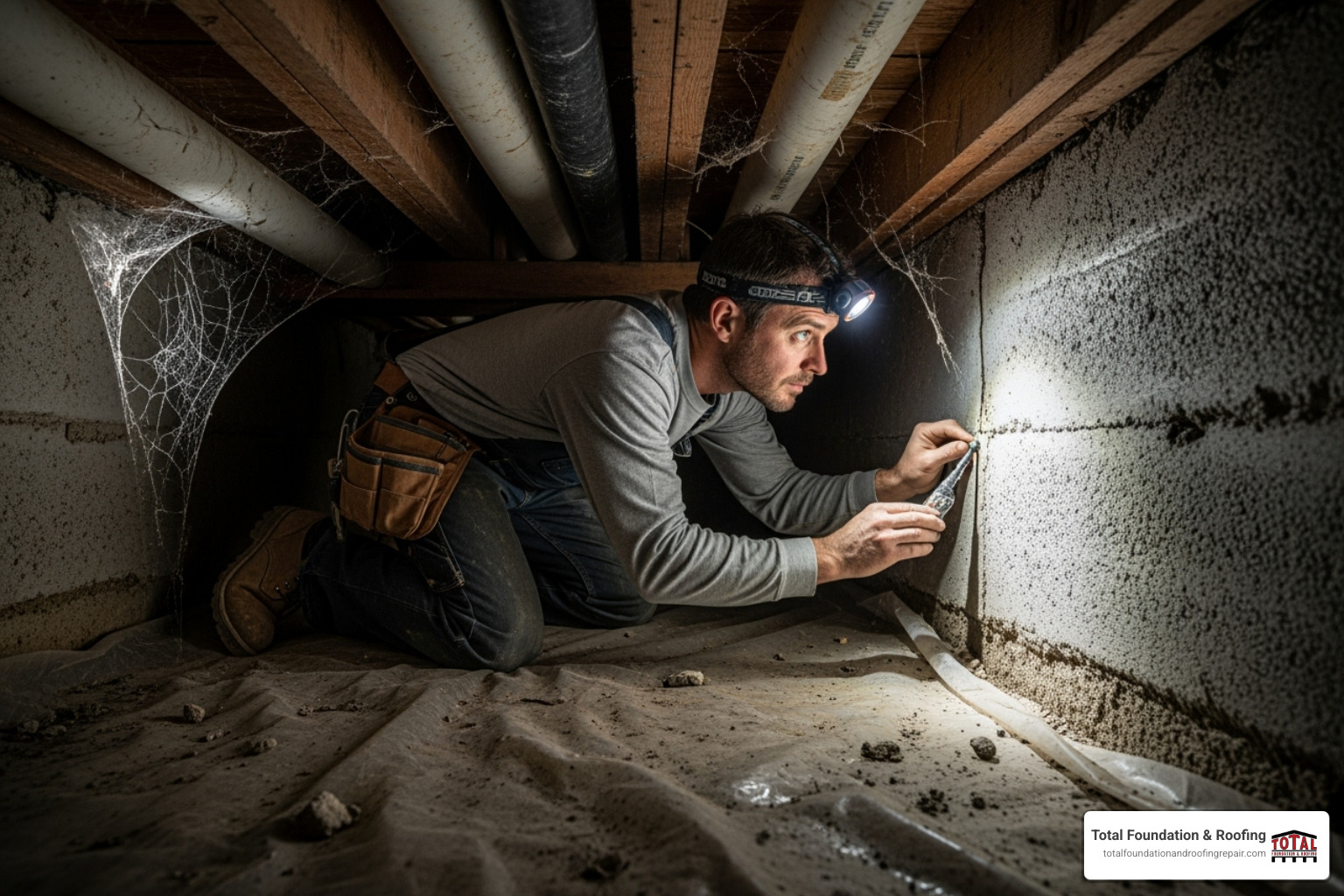
Finally, your home size matters. A larger home has more foundation to repair, increasing material and labor needs. With labor averaging around $200 per hour, these factors quickly add up. For more detailed insights, you can find more info about foundation repair methods from trusted sources.
Average Cost of Foundation Repair by Method
These price ranges represent typical costs, though your specific situation will vary.
- Epoxy and polyurethane injections for non-structural cracks typically cost $300 to $1,000 per crack.
- Carbon fiber reinforcement for structural issues costs $1,200 to $5,000 per crack.
- Mudjacking and slabjacking for lifting settled concrete slabs run $500 to $1,450.
- Piering and underpinning are heavy-duty solutions for serious settlement. Hydraulic push piers cost $1,000 to $3,000 per pier, while helical piers run $1,400 to $2,100 per pier. The number of piers needed determines the total cost, which can range from $10,000 to $40,000 for partial or full stabilization.
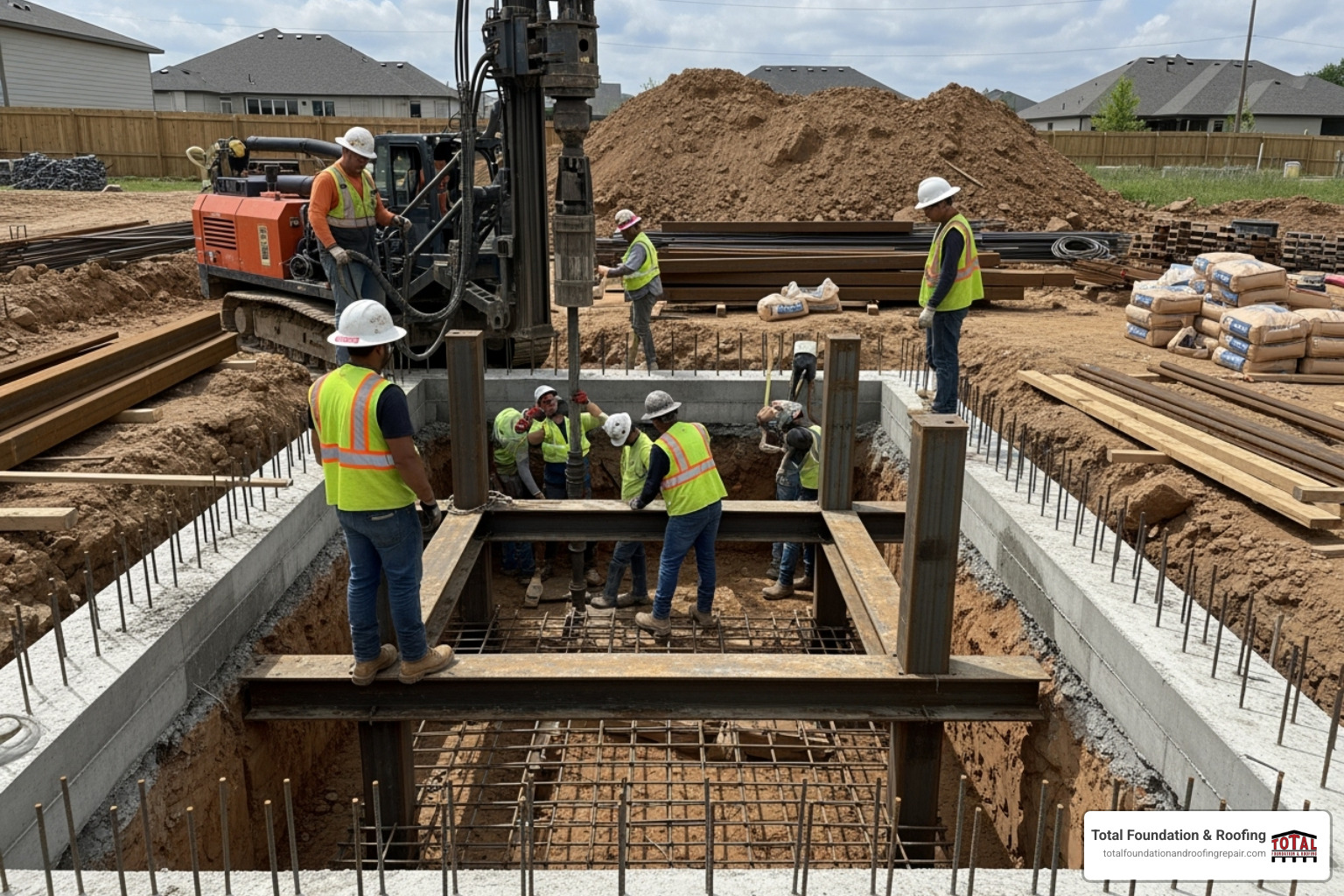
- Exterior excavation to access foundation walls for repair or waterproofing typically starts at $15,000.
- Water-related repairs are a critical investment. Basement waterproofing ranges from $2,000 to $10,000, while a French drain system to redirect water costs $15,000 to $25,000. You can learn more about how a French drain installation protects your foundation.
Additional Expenses to Budget For
Don’t get caught off guard by these necessary extras:
- Permits: Required for most structural work, they cost $75 to $150.
- Structural Engineer Report: An unbiased evaluation costs $300 to $1,000 and ensures you get the right solution.
- Plumbing Tests: A hydrostatic test to check for leaks after foundation lifting costs $250 to $500.
- Landscaping: Budget for restoration costs if your yard is disturbed.
- Contingency Fund: Set aside $1,000 to $2,500 for any unexpected issues that may arise once work begins.
Protecting Your Investment and Making Smart Choices
Foundation problems are daunting, but proactive homeowners can save thousands and protect their investment. The right approach can prevent a manageable repair from becoming a financial nightmare.
How to Save Money on Foundation Repairs
The smartest money-saving strategy is being proactive to prevent small problems from becoming big ones.
- Early detection is key. Foundation problems don’t fix themselves, and waiting often costs 20% more. A hairline crack that costs $500 to seal today could become a $15,000 structural repair if ignored.
- Preventative maintenance is crucial. Proper drainage is critical in the Texas Hill Country. Ensure soil slopes away from your home, keep gutters clean, and extend downspouts 3-4 feet away. This simple step prevents water from pooling around your foundation.
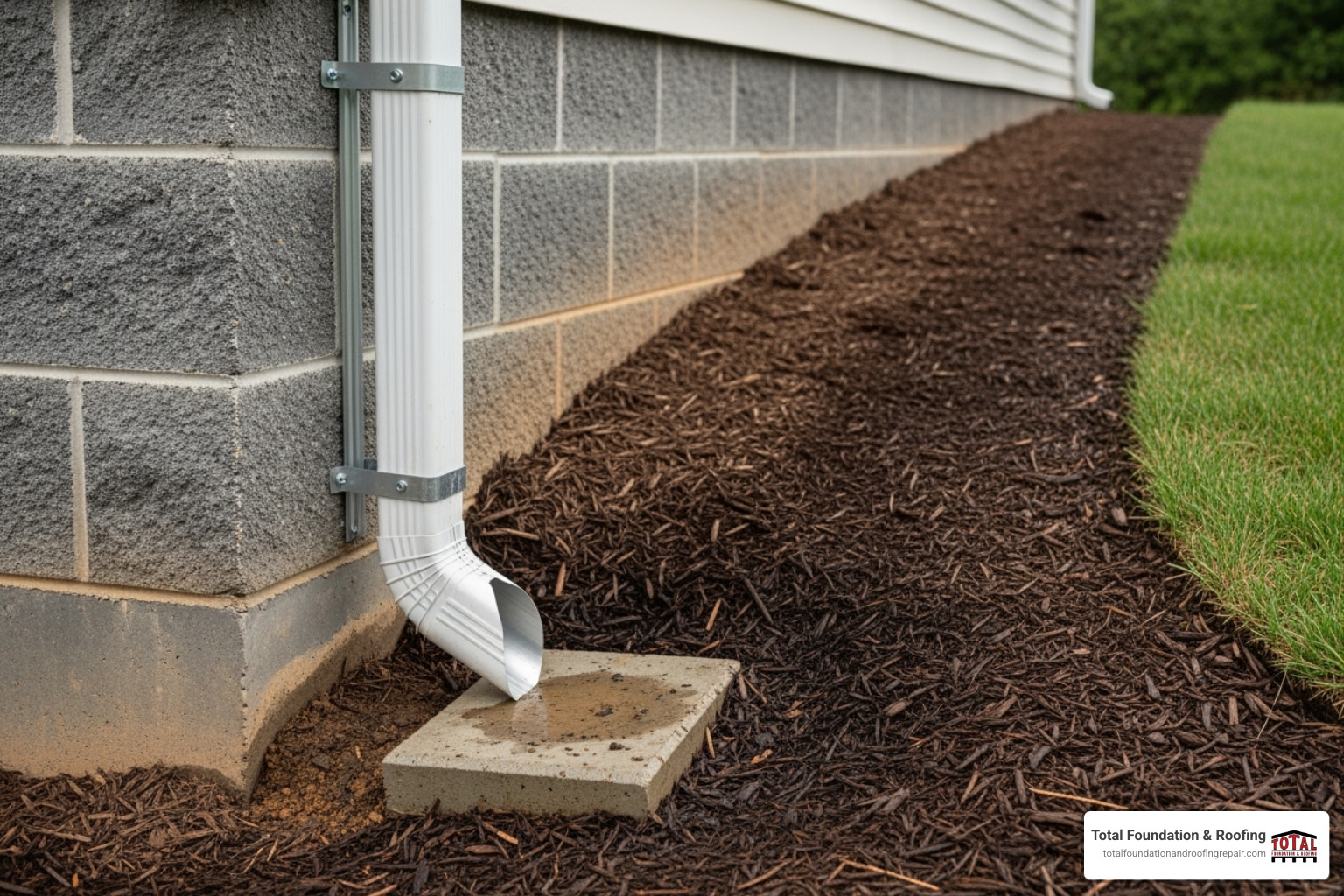
- Watch your landscaping. Keep large trees a safe distance from your foundation to prevent roots from causing soil shrinkage and settlement. During droughts, using a soaker hose to maintain consistent soil moisture can prevent costly repairs.
- Get multiple quotes. Obtain at least three detailed estimates from reputable contractors to compare prices, methods, and warranties.
- Choose permanent solutions. Investing in quality work and materials might cost more today, but it saves money and stress by avoiding repeat repairs.
Why Delaying Repairs Costs You More
Foundation problems are progressive and don’t fix themselves. Delaying repairs allows minor issues to escalate, risking your home’s structural integrity and increasing the final cost of foundation repair.
- Problem Escalation: A small crack can become a pathway for water, leading to major structural damage. A $1,000 fix can quickly turn into a $20,000 emergency.
- Collateral Damage: As a foundation shifts, it causes uneven floors, sticking doors and windows, and cracks in drywall and brick throughout the house.
- Water Damage and Mold: Cracks invite moisture, leading to expensive water damage restoration, wood rot, and mold remediation, which can add $10,000 or more to your bill.
- Decreased Property Value: A home with foundation issues can lose 10-15% of its value. You’ll either have to fix it before selling or accept a much lower offer. The reality is that a small problem can become a major expense if you don’t get it done in time.
Finding a Reliable Contractor for Your Foundation
Choosing the right contractor is as important as the repair itself. This is a job for a specialist, not a general handyman.
- Check Licensing and Insurance: Ensure any contractor is properly licensed and carries comprehensive liability insurance to protect you.
- Verify Experience: Look for contractors with a solid track record in your area. Our team has over 18 years of experience with the unique challenges of Texas Hill Country homes.
- Ask About Warranties: A reputable contractor stands behind their work with solid warranties on both labor and materials. This is a sign of confidence.
- Get Detailed Written Estimates: A professional will provide a clear, written estimate outlining the scope of work, materials, timeline, and costs.
- Assess Communication: A contractor should be responsive, clear, and willing to answer all your questions. Good communication is key to a smooth project.
Don’t let foundation problems undermine your home’s value and your peace of mind. The sooner you address issues, the less they’ll cost. Contact us today for a free assessment, and let’s get your home back on solid ground.
